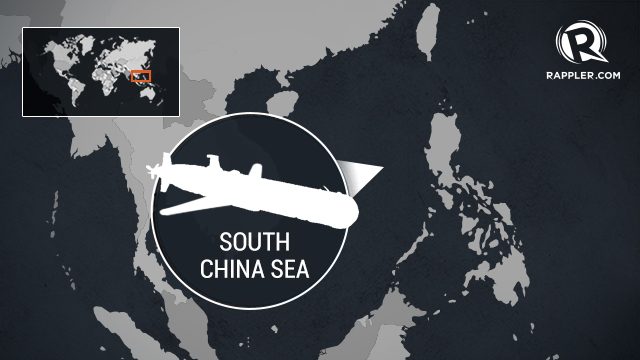SUMMARY
This is AI generated summarization, which may have errors. For context, always refer to the full article.

WASHINGTON, DC, USA (3rd UPDATE) – China has seized an unmanned US naval underwater testing vehicle in international waters in the South China Sea, a US defense official told Agence France-Presse on Friday, December 16 – a move sure to heighten concerns about Beijing’s military presence in the disputed area.
The probe, a US Navy vessel operated by civilians, “was taken” by China, the official said, adding the craft was seized about 50 miles off Subic Bay.
The “naval glider” was used to test water salinity and temperatures to help in the mapping of underwater channels, the official said.
The vessel’s seizure comes amid rising tensions in the South China Sea, where China has moved to fortify its claims to the region by building out tiny reefs into artificial islands.
The Philippines, Brunei, Malaysia and Vietnam have competing claims in the South China sea, which is laced with the world’s most heavily traveled international trade routes.
New satellite imagery made public Wednesday by a US-based think tank showed that China apparently has installed what appeared to be large anti-aircraft guns and close-in weapons systems on seven islets in the Spratly chain.
While the United States takes no position on sovereignty claims in the South China Sea, it has repeatedly stressed that all maritime claims must comply with international law.
The US military has conducted several “freedom of navigation” operations in which ships and planes have passed close to the sites Beijing claims.
Such missions have drawn howls of fury from China, which accuses Washington of provocation and increasing the risk of a military mishap.
Adding to the tension, Beijing is facing a new US president in Donald Trump, who has questioned longstanding US policy on Taiwan, called Beijing a currency manipulator and threatened Chinese imports with punitive tariffs. – Rappler.com
Add a comment
How does this make you feel?
There are no comments yet. Add your comment to start the conversation.